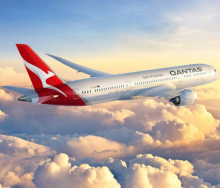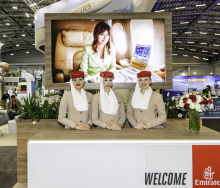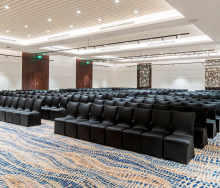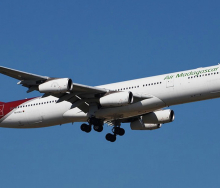NATIONAL Treasury will respond
in a week to a controversial
application by the SAA board
to renegotiate a contract with Airbus
for the lease of five A330 wide-body
aircraft, Deputy Finance Minister,
Mcebisi Jonas, told Parliament in
Cape Town on November 18.
He was speaking at a joint sitting
of the Standing Committees on
Finance and Public Enterprises also
attended by SAA board chairperson,
Dudu Myeni, newly appointed acting
ceo, Musa Zwane, and SAA nonexecutive
director and chairperson
of its audit & risk committee, Yakhe
Kwinana.
In March SAA already renegotiated
a 2002 contract to swap the
purchase of 10 A320 narrow-body
aircraft with a lease for the five
A330s, thereby saving R1,6bn.
Yakhe told Parliament SAA was still
committed to swapping the aircraft
but now wanted to opt out of an
operating lease through Airbus and
instead aim for a finance lease
through a local funding company.
She said an operating lease through
Airbus would mean a cost to SAA of
US$895 000 (R12,71m) a month
per aircraft over a lease period of
12 years, while at the end of the
day, the airline would not own the
planes and have no assets to show
on its balance sheet. A finance lease
instead would require the aircraft to
be included on SAA’s balance sheet
and would remain SAA’s property.
She said local funding would
also save SAA R2,6m in currency
fluctuations. She said if approved
by Treasury, SAA would send out
tenders to local banks and funding
institutions.
Yakhe said SAA could not yet
submit its annual report or sign off
its financial statements as required,
because it would need financial
guarantees from Government should
the Airbus contract be renegotiated.
She said SAA would need R1,6bn
less in financial guarantees if
National Treasury approved the
proposed local deal.
Mcebisi said SAA had only
submitted its application to
renegotiate the contract on
November 16. The application was
in the process of being assessed
by Treasury’s fiscal and liability
committees. “We have raised a lot
of concerns to the SAA board and I
assume they are responding and this
will be another process.” He added:
“We are closely sticking to the
legal requirements. This should not
compromise SAA’s financial position
and we need to look at what are
the risks of moving away from the
existing contract. It is important that
we look at the letter of the law in
dealing with these issues.”
SAA’s chief commercial
officer, Sylvain Bosc, has
been placed on “special
leave” for allegedly
misleading the airline’s board
regarding the profitability
of the Abu Dhabi route,
while chief financial officer,
Wolf Meyer’s contract was
not renewed over financial
irregularities at SAA stations
overseas.
This is according to SAA
non-executive director and
chairperson of its audit & risk
committee, Yakhe Kwinana,
who appeared before a
joint sitting of the Standing
Committees of Finance
and Public Enterprises at
Parliament in Cape Town on
November 18.
She said an investigation
by Ernest & Young into
SAA pointed to “major
irregularities” and mentions
“major accounts for which
services are rendered
without the proper contracts,
one of them being the Abu
Dhabi route”. She said SAA
planned to close the Abu
Dhabi route after the Ernest
& Young audit revealed
that SAA management had
deliberately misled the board.
She said when opening the
route, SAA management
had predicted 78% load
factors and R5 600 fares
resulting in a nett loss in
the first year of R49m on
the route. However, two
internal reports that were not
submitted by management
to the board revealed
40-50% load factors, fares
of R4 600 resulting in a nett
loss of R446m in the first
year. She said the outside
specialists at the outset had
predicted that SAA would
never make a profit on the
route and had predicted
R246m losses in the first
year. “The executives at SAA
in fact knew about this and
they misled us and gave us
the incorrect information on
which we made inappropriate
decisions. To date we have
incurred losses in respect of
Abu Dhabi to the extent of
R30m per month, or R270m
over the nine months we
have operated the route.”
Yakhe said chief financial
officer Wolf Meyer’s contract
had expired on July 31. “He
was saved by the chairperson
but I wrote to her and
advised against the renewal
of his contract. I had a lot
of reasons, one being that
the outside audit found
money is not being deposited
into SAA’s bank accounts at
its out-stations, such as
São Paulo.”
She said the recent
removal of the former acting
ceo, Thuli Mpshe, related to
her returning to her previous
position as gm of human
resources to avert a strike
by cabin crew over issues of
discrimination and racism
and to address unhappiness
among the airline’s pilots.













